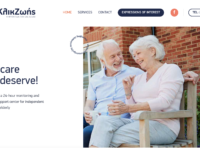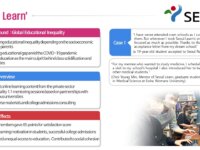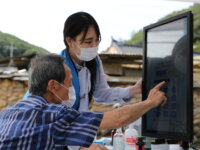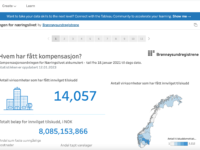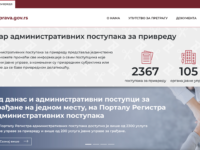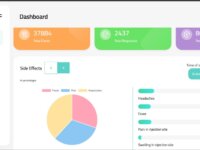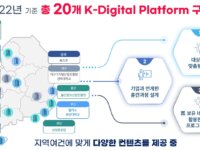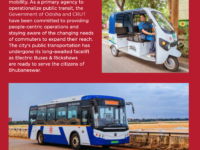The innovation involved creating a central support service for elderly people who need care and monitoring. For this purpose, a Call Center operates on a 24-hour basis with properly trained staff composed of social workers and psychologists, who have direct access to each elderly person's file and respond to the elderly person's emergency calls by telephone.
Innovation Tag: Public Service Delivery
Recognising the need for a high level of Cyber Security across the public sector, the National Cyber Security Strategy (NCSS) called for the creation of a Common Cyber Security Baseline Standard across all Public Sector Bodies and for the establishment of the “CORE Network” to share best practice for cyber security across Government. This project embodies the Irish Civil Service Renewal 2030 Strategy by delivering evidence-informed policy and services, harnessing digital technology and…
'Seoul Learn' is a project that provides equal educational opportunities to the vulnerable population that has difficulties in accessing educational resources due to socioeconomic reasons. Educational inequality in Korea has been identified as the main culprit behind generational poverty. The project offers various educational services via public platforms to prevent education from causing inequalities.
Since its inception in 2020 for the purpose of realizing a digitally inclusive society, the Digital Competency Center Project has been providing digital competency training for citizens to enjoy the benefits of digital technologies and services as their lives and socioeconomic activities are rapidly digitalized. Thanks to the innovation, any person in Korea can visit their local Digital Competency Center for a free, hands-on training programmes to foster skills for using mobile or digital…
The digital compensation scheme was created to support Norwegian businesses to endure the financial consequences of the Covid-19 pandemic. The scheme designed was quick, efficient, and can be relaunched when needed. Checks are done before the disbursement, which minimizes the need for verification afterwards and also prevents misconduct. Applications are approved by an auditor, and then automatically processed and checked against information from a variety of sources and registers. Information…
Bureaucracy in Jakarta faced 3 main problems: scattered and unstandardized data, siloed systems, and unintegrated services; making public services inefficient and costly, eventually decreasing public service quality. Jakarta Capital City Government addressed the mentioned challenges through JAKI, a Super-App that integrates services by unifying Jakarta’s bureaucracies and data in one digital ecosystem that prioritises citizen participation in overcoming city problems. JAKI is a one-stop…
Citizens and businesses often face complex, expensive and non-transparent procedures in order to acquire licenses, permits or certificates, or to fulfill their obligation(s). To solve this issue, the Register of Administrative Procedures (RAP) and its public portal provide information about more than 2300 procedures for citizens and businesses within competences of more than 90 authorities in Serbia – all in one place. It makes public services easy, transparent, predictable and accessible…
The Government of Ekiti State is working with the Massachusetts Institute of Technology Governance Lab (MIT/GOVLAB) and has developed a community-based reporting system called “E-Surv”. E-Surv enables the participation of community members in public health surveillance by reporting public health events/emergencies, to activate a time-efficient government-led responses. This E-Surv which has been piloted in the State will create an early warning system for disease surveillance and laboratory…
The Korean government recently piloted the K-Digital Platform (KDP) to enhance national digital literacy and foster manpower suitable for digital convergence as digital transformation and low-carbon economy transition accelerated in all areas of the labor market. This is to strengthen the digital capabilities of various consumers, including workers, young job seekers, and the self-employed, and to preemptively and systematically respond to structural changes in future industries.
To create a sustainable and inclusive public transport ecosystem, Capital Region Urban Transport (CRUT) has redefined public transit through its user-centric services. CRUT’s Mo E-Ride (E-Rickshaw) service provides feeder services for its primary Mo Bus (city bus) routes, forging ways for integrated multimodal mobility solutions. CRUT has also consciously invested in holistic policy decisions that supports social and gender inclusivity. The hallmark of its initiatives lies in its integration…

